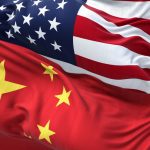As powerful technologies like artificial intelligence and robotics become widespread, so have worries about the future of work. Will these innovations make employees irrelevant and ultimately take their jobs?
The good news is that they don’t have to. Policymakers can use education to leverage technology and build a better future for workers, says Yong Suk Lee, assistant professor of technology, economy, and global affairs at the Keough School.But there’s a challenge, he says: Curricula and training are outdated.
Lee’s research suggests a few avenues for navigating this challenge. For instance, he says employers can focus on “upskilling” their workers by training them to take advantage of new technologies (making them more productive and valuable). And in sectors like the automotive industry, industrial robots can complement workers rather than replacing them.
Our intentions really matter. Technology will become a larger factor in either the inequality or well-being of workers everywhere.
This people-centered approach is a natural fit for Lee, an economist who cares deeply about human dignity. He studies new technologies and the governance and ethical issues that come with them. Conceptually, his approach puts human beings in the driver’s seat: Technology, while powerful, is ultimately a tool people can use to promote dignity and flourishing.
“Human beings are the ones creating and adopting these new tools—and our intentions really matter,” Lee says. “I think technology will become a larger factor in either the inequality or well-being of workers everywhere, and I am excited to conduct research that can help workers adapt, thrive, and flourish.”



